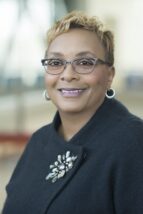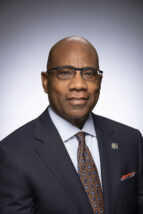What Is a Business Consultant?
Do you enjoy offering people advice? As a business consultant, you work with business professionals on projects to help them succeed. Business consultants analyze organizational practices, identify weaknesses, and recommend solutions. Learn how to become a business consultant and what area to specialize in.
What Do Business Consultants Do?
Business consultants are professional advisors who help companies achieve certain goals. Most consultants work with leadership teams to do the following:
Responsibilities vary depending on the industry you are working in and the goals of the company. Most of the time, business consultants are hired when something isn’t going as planned. As a business leader, if your company isn’t producing enough products or making enough money, or morale is extremely low and causing high turnover among employees, it may be time to hire a consultant.
What Types of Business Consultants Are There?
Business consultants often specialize in specific areas such as marketing, human resources, management, engineering, or finance, and provide expert advice on that topic. Furthermore, business consultants tend to work with similar businesses. Whether you consider yourself an expert in small business consulting, human resources consulting, or IT consulting, the main goal is to improve the overall business. Furthermore, most business consultants previously worked in the field that they now consult in.
Small Business Consultants
Small business consultants usually give new or experienced business owners advice on problem solving, strategy, and developing skills. Since many small business owners tend to be experts in the product they sell, rather than in running a business, it is common to work with a business consultant. Some responsibilities can include:
Ultimately, business owners hire business consultants who are experts in a field they need the most help with.
Operations Consultants
Operations consultants are hired to improve a company’s internal operations. Operations consultants support implementation of a company’s target operating model, management systems, functional business processes, and culture throughout the life cycle of a business’s products.
HR Consultants
Human resource consultants offer a variety of services, including professional consulting, education, training, and human resource advice. Most companies hire a HR consultant when they aren’t satisfied with its current employees or their management. An HR consultant observes employees and upper leadership to seek out weaknesses. They then develop plans that will benefit the client. In some cases, HR consultants will assist with the hiring of new employees or firing of current ones.
Risk Management Consultants
A risk management consultant assesses the various risks faced by a particular organization. This can include cyber risk assessments, governance, risk and compliance, incident response planning, and IT. Most organizations hire a risk management consultant when things might not be going as planned within the organization, or the industry is changing. The goal of hiring a risk management consultant is to get ahead of big challenges. They help forecast the future of the organization and industry so upper leadership can better prepare.
IT Consultants
IT consultants manage just what the title suggests: technological issues. Most of the time, organizations hire IT consultants when there are issues with their current system or network or when they implement a new system or network. IT consultants handle anything from computer repairs to management and maintenance of large networks, depending on the client’s needs.
How to Become a Business Consultant
There is no direct path to becoming a business consultant. Many begin with a bachelor’s degree in business administration, marketing, management, leadership, or a related field. A good consultant has work experience in the field they wish to consult in. That can be anything from an internship for a few months, to working in the field for years, and becoming a consultant later in life.
Skills Needed to Become a Business Consultant
In addition to a bachelor’s degree and work experience, successful business consultants have these skills:
Lastly, successful business consultants must have strategic consulting skills. You must be able to identify problems, find solutions, create long-term plans that companies can realistically execute, and always be listening and observing. A certificate in leadership from Excelsior University will help you strengthen your skills and set you up to be a successful business consultant.

 Albany, New York—The Excelsior University board of trustees has named Matt Loeb as its chair. He has been a member of the board since 2017. Loeb has more than 30 years of global leadership experience and is a certified board director by the National Association of Corporate Directors. He is currently CEO and principal of Optimal Performance Seekers LLC, and non-executive chair of the Bubblr (OTC:BBLR) Board of Directors.
Albany, New York—The Excelsior University board of trustees has named Matt Loeb as its chair. He has been a member of the board since 2017. Loeb has more than 30 years of global leadership experience and is a certified board director by the National Association of Corporate Directors. He is currently CEO and principal of Optimal Performance Seekers LLC, and non-executive chair of the Bubblr (OTC:BBLR) Board of Directors. The board also named Charlene Dukes, president emerita at Prince George’s Community College, vice chair of the board. Dukes was the first female president of the community college, which is the home of the National Cyberwatch Center, an advanced technology education site funded by the National Science Foundation.
The board also named Charlene Dukes, president emerita at Prince George’s Community College, vice chair of the board. Dukes was the first female president of the community college, which is the home of the National Cyberwatch Center, an advanced technology education site funded by the National Science Foundation. New trustees appointed to the board include Daniel Greenstein, chancellor of Pennsylvania State System of Higher Education, and David Wilson, president of Morgan State University.
New trustees appointed to the board include Daniel Greenstein, chancellor of Pennsylvania State System of Higher Education, and David Wilson, president of Morgan State University.  Wilson’s tenure as Morgan’s president, which began in 2010, has been characterized by great gains and an era of unprecedented transformation for the University. He has authored two books and more than 20 articles and was inducted into the Baltimore Sun’s Business Civic Hall of Fame in 2021.
Wilson’s tenure as Morgan’s president, which began in 2010, has been characterized by great gains and an era of unprecedented transformation for the University. He has authored two books and more than 20 articles and was inducted into the Baltimore Sun’s Business Civic Hall of Fame in 2021.